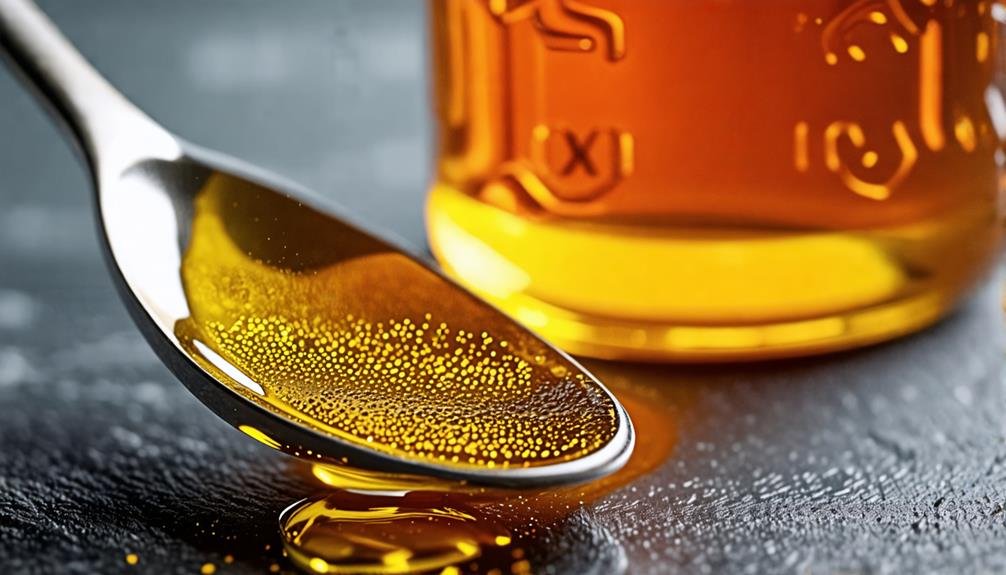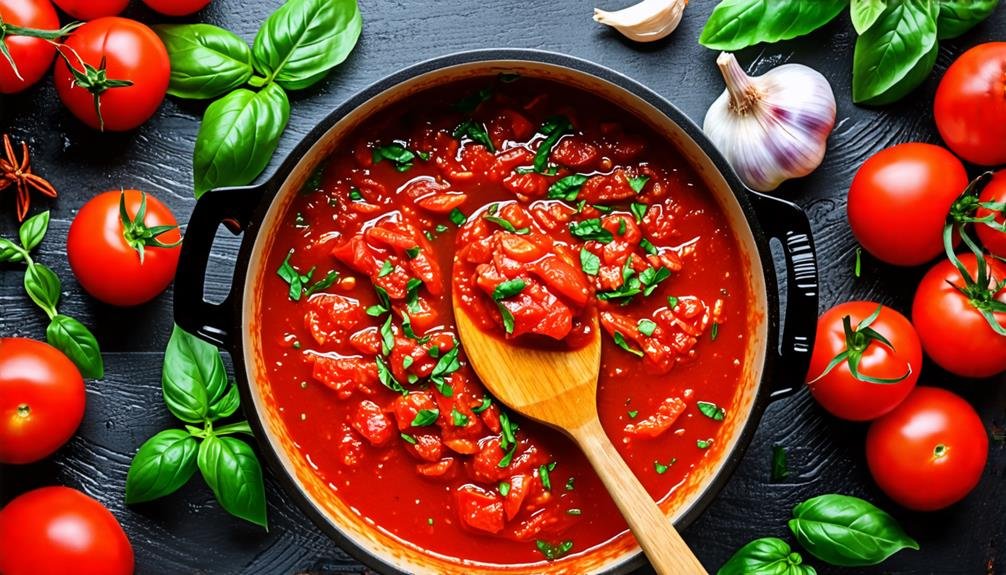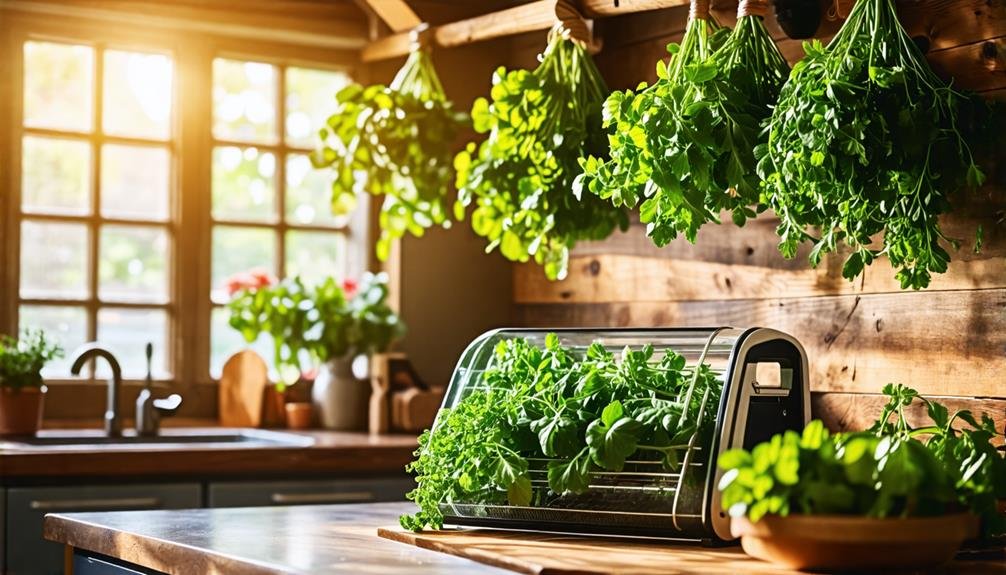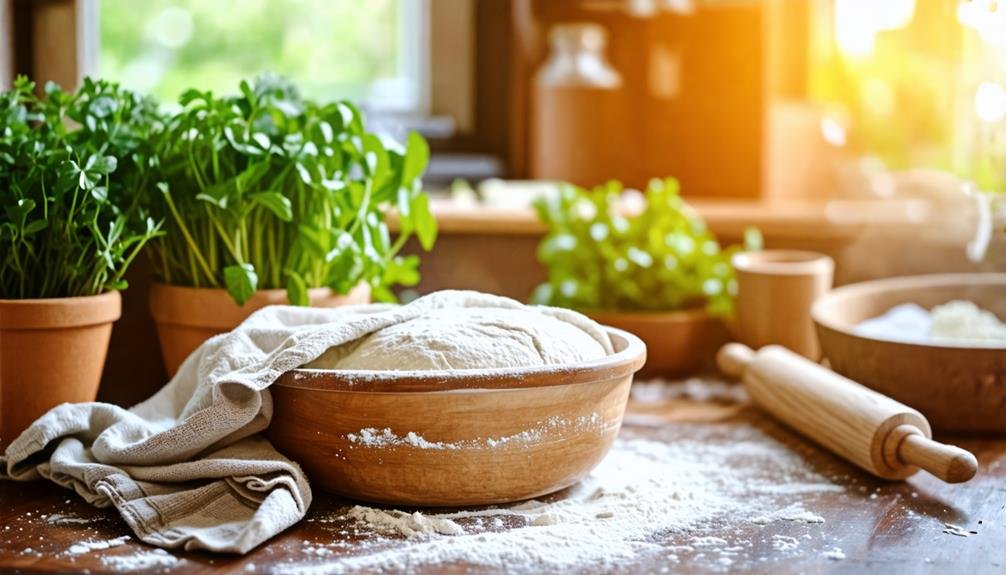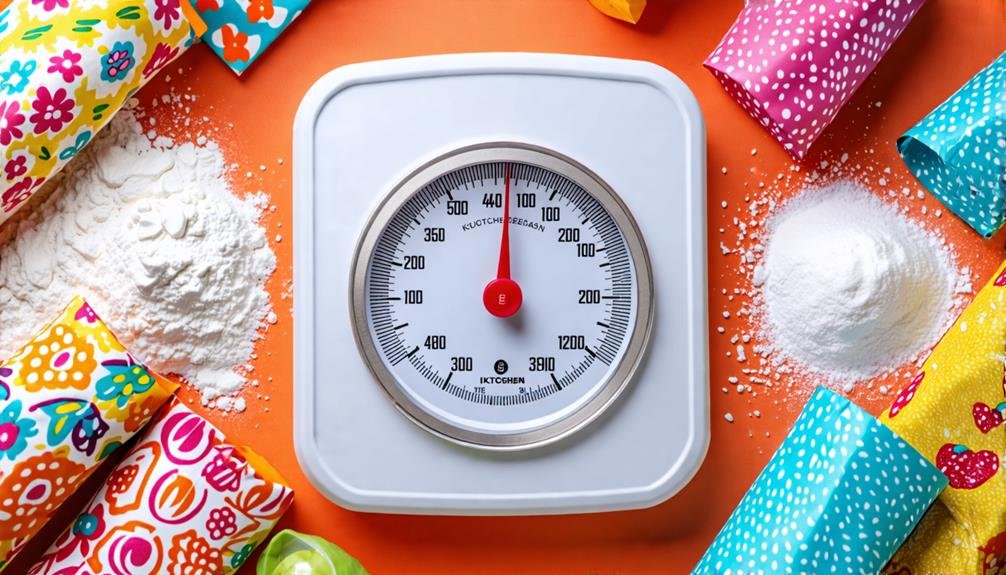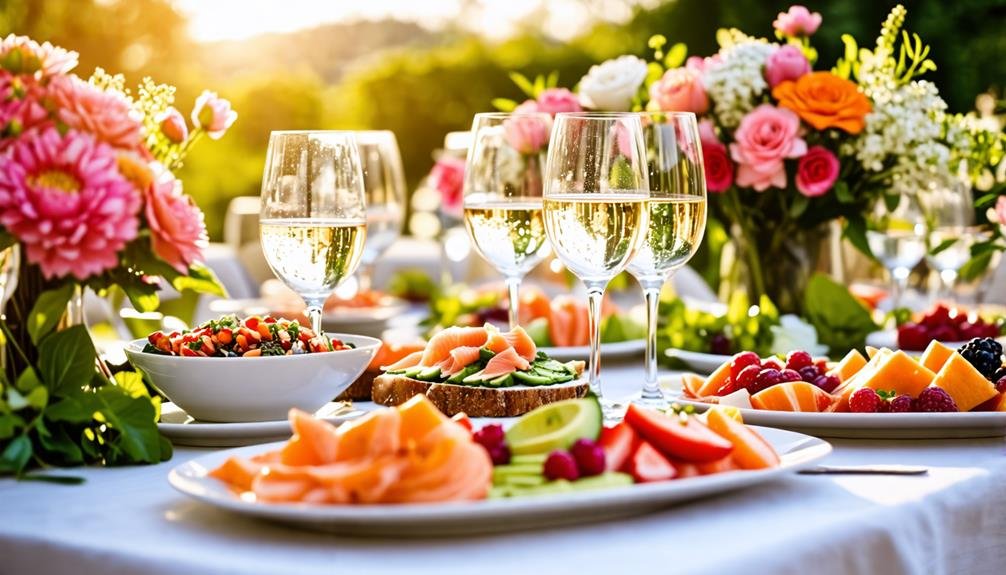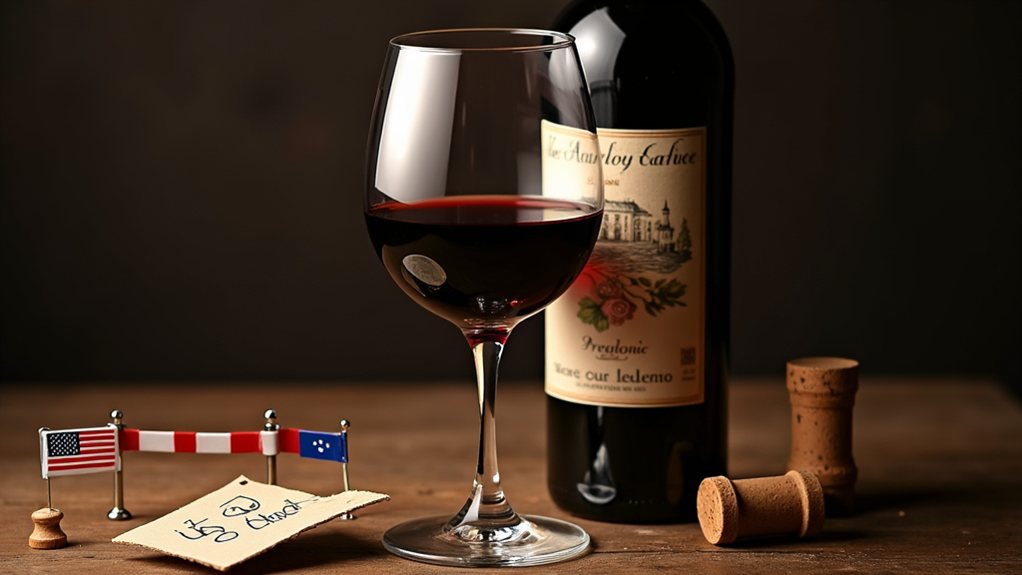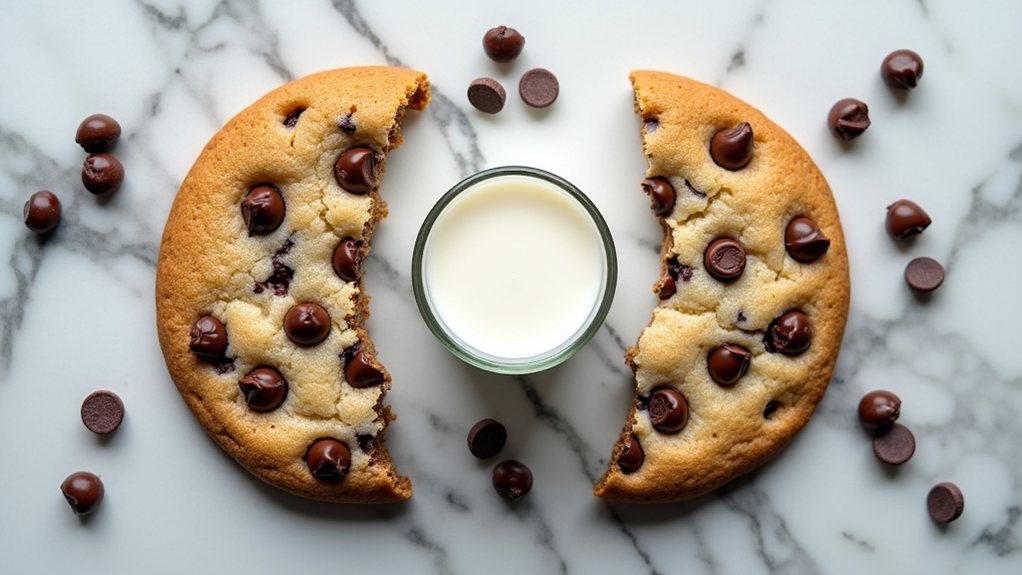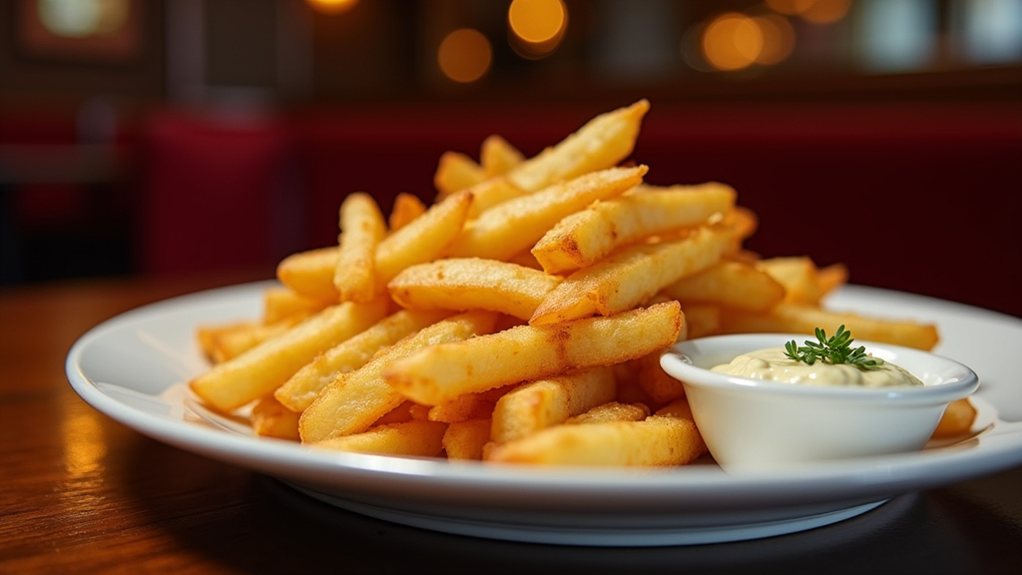To stop syrup and honey from sticking to your utensils, simply apply a neutral oil like canola or grapeseed. This clever trick creates a slick barrier, making honey and syrup slide right off. It's a lifesaver for other sticky ingredients too! Just imagine pouring thick molasses or peanut butter without a mess. Additionally, warming your utensils can reduce stickiness, enhancing your cooking experience. Opt for neutral oils that won't alter the flavor, allowing your dish's true taste to shine. Embrace this hassle-free method and enhance your culinary skills, and there's always more to explore to make cooking more enjoyable!
Reasons for Stickiness
The stickiness of honey and maple syrup stems from their high sugar content, which hinders the movement of water molecules in these thick liquids. This concentrated sweetness creates an environment where sugar molecules bond tightly, resulting in a syrupy consistency that adheres to kitchen tools. Recognizing this basic characteristic is essential for anyone aiming to prevent syrup from sticking to cooking utensils—a frequent culinary dilemma.
Numerous kitchen tricks can help alleviate this sticky predicament. One practical solution is to apply a light layer of a neutral oil, like canola or vegetable oil, to your measuring cups and spoons before adding the honey or syrup. This straightforward technique creates a barrier that significantly decreases stickiness, allowing the syrup to pour smoothly and ensuring that you maximize every drop.
Expanding the Hack's Use
Applying cooking oil or a non-stick spray can enhance your culinary tasks beyond just honey and syrup, making it effective for other sticky kitchen staples. For example, brands like Karo syrup, Jif peanut butter, and Agave in the Raw syrup can all be managed effortlessly using this hack. Imagine preparing your favorite dishes without the hassle of sticky measuring tools!
Using a neutral cooking oil or non-stick spray not only improves your cooking experience but also simplifies the clean-up process. No longer will you struggle with stubborn remnants; your kitchen utensils will stay clear of these thick substances. Picture pouring rich Karo syrup into your baking batter, confident that it will slide right off your measuring cups.
This technique is a game changer, allowing you to concentrate on creating delicious meals instead of dealing with clingy ingredients. Whether you're spooning Jif peanut butter into smoothies or drizzling Agave in the Raw over pancakes, the liberation from stickiness enables you to explore your culinary creativity. Embrace this hack and enjoy a smoother, more enjoyable cooking experience that frees you from the sticky challenges of your kitchen!
Benefits of Warm Surfaces
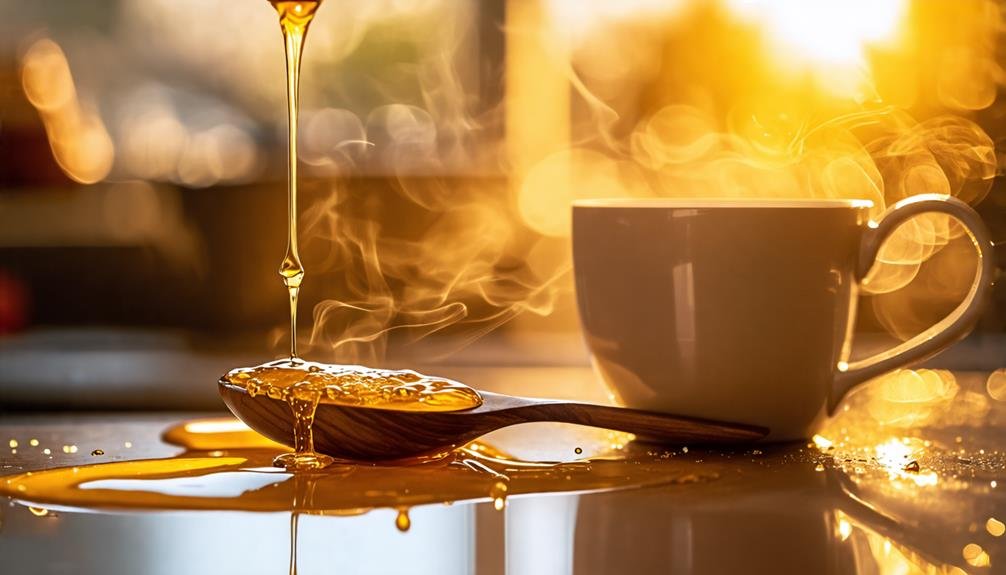
Using warm surfaces greatly improves the handling of sticky substances, making them simpler to measure and work with. For instance, when you warm measuring cups and spoons under hot water for about 30 seconds, ingredients like honey and maple syrup glide out easily. This straightforward method can elevate your culinary adventures, allowing you to focus on creativity rather than battling with clingy ingredients.
The warmth helps reduce the stickiness of sugars, minimizing residue left behind. Imagine pouring maple syrup over a stack of fluffy pancakes without having to scrape the last bits from your measuring cup! This technique not only streamlines your preparation process but also simplifies cleanup, keeping your kitchen a delightful space for culinary exploration.
For best results, use warm tools right away, as the heat effectively lessens stickiness. This practice encourages you to confidently work with a variety of sticky ingredients, leading to more enjoyable cooking experiences. Whether you're baking a rich chocolate cake or mixing a zesty vinaigrette, taking advantage of warm surfaces can elevate your kitchen skills to new heights. Embrace the warmth and let your culinary creativity shine!
Choosing Neutral Oils
Choosing the right neutral oil is crucial for effectively applying the hack that prevents sticky ingredients from clinging to kitchen utensils. Oils like Canola, Crisco Vegetable Oil, Avocado Oil, and Grapeseed Oil are superb options, as they add minimal or no flavor, allowing the true essence of honey or maple syrup to shine. This is especially important for home cooks who cherish the freedom of flavor in their culinary creations.
When selecting an oil, consider the origin—oils derived from fruits, vegetables, and grains generally perform best. Sunflower Oil and Safflower Oil also fit the bill, offering versatility without overpowering your dish. A simple taste test can help you discern which oil enhances your favorite recipes, ensuring you achieve both function and flavor.
Additionally, using these oils as a lubricant simplifies your cooking process and elevates it. Picture pouring maple syrup effortlessly, without the annoyance of stickiness on your utensils! So, the next time you grab that jar of honey, remember that the right neutral oil is your kitchen companion, empowering you to create freely. Embrace this technique and enjoy the convenience it provides!
Applying the Hack to Large Measurements
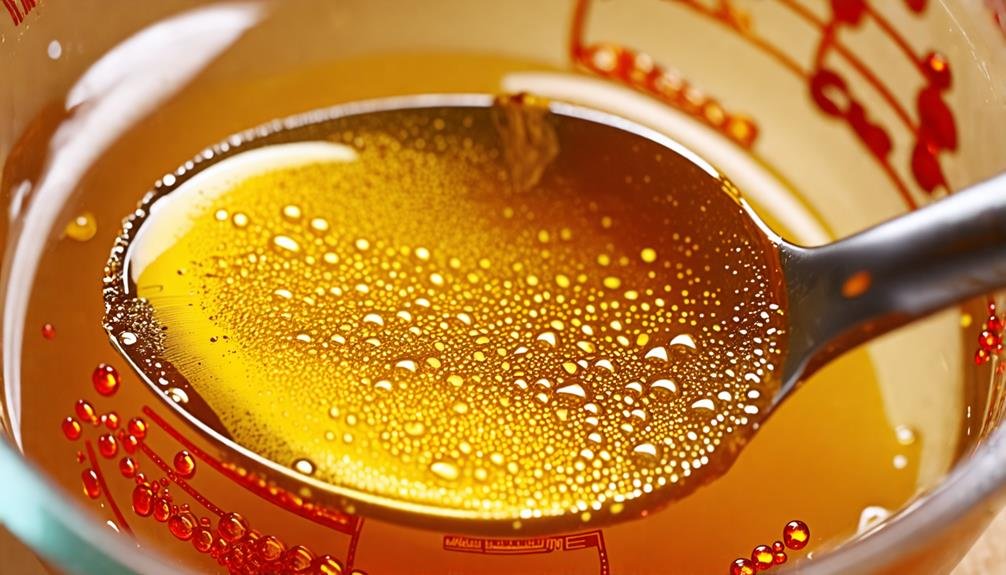
Using neutral oils enhances measuring sticky ingredients. This technique is particularly useful for large quantities of viscous substances like honey or syrup. For example, when pouring a cup of Aunt Jemima maple syrup into a marinade, a quick spray of canola oil inside your measuring cup can make the task much easier.
The oil creates a slick surface that helps the syrup slide out smoothly, ensuring accurate measurements without sticky residue. This method is especially handy for incorporating thick ingredients, such as when mixing Grandma's molasses into cookies or drizzling organic agave syrup over cakes.
This versatile trick can be applied in various cooking situations, giving you greater freedom in the kitchen. It not only ensures precise measurements but also makes cleanup simpler, allowing you to focus on the enjoyable aspects of cooking without dealing with messy utensils. Next time you measure larger quantities, remember this effective tip—your culinary experience will be much more pleasant!
